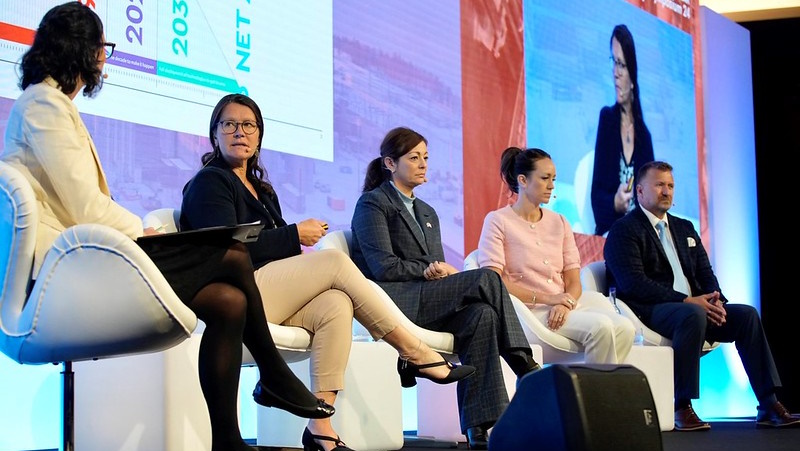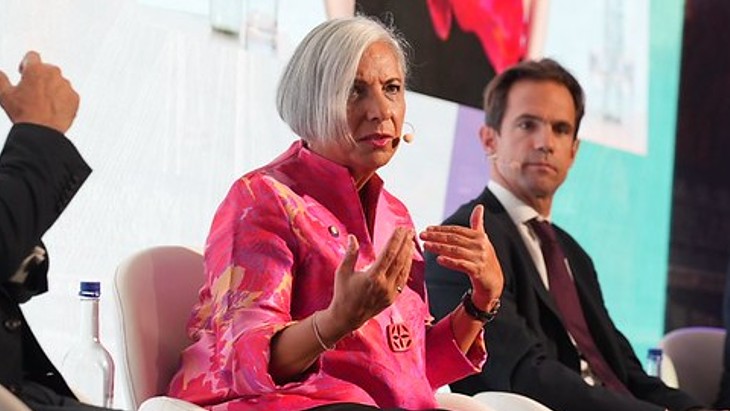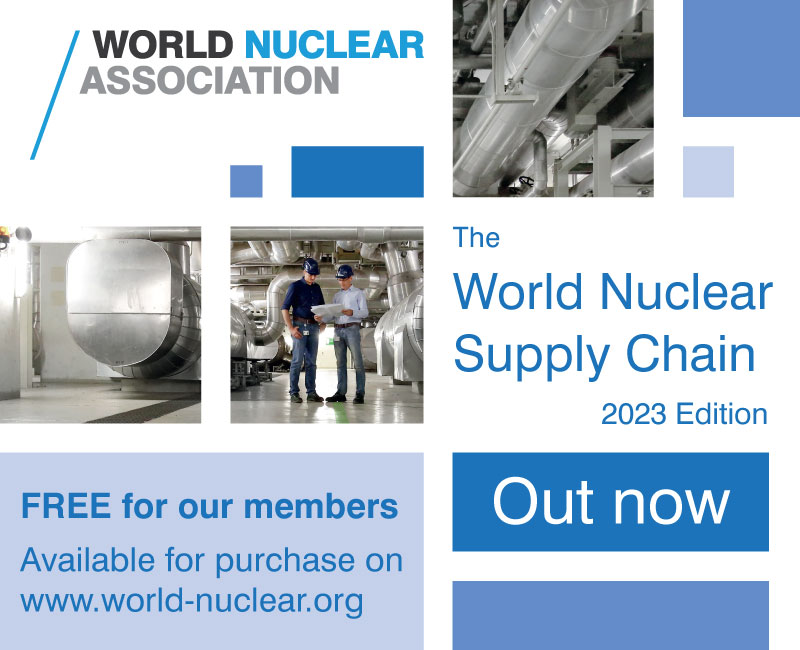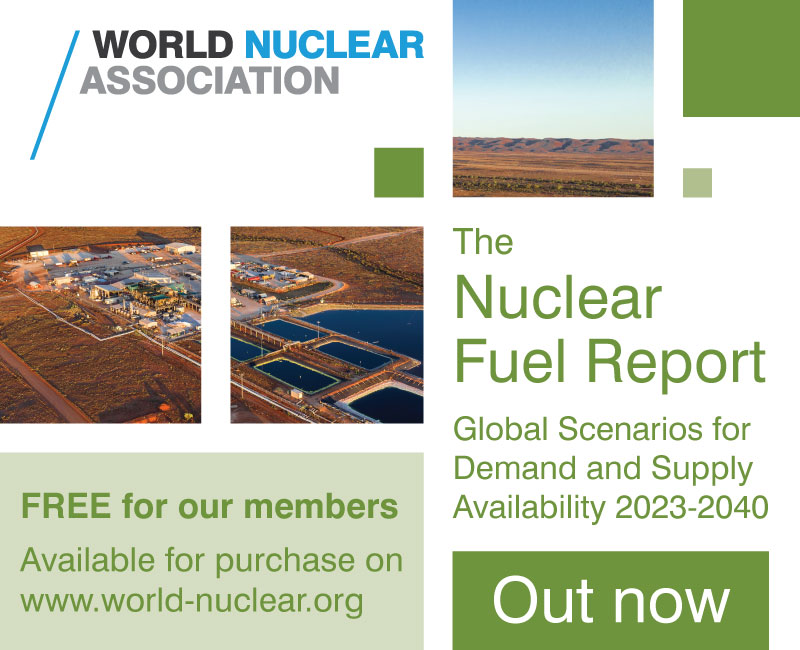Australian organisation calls for end to nuclear ban
 48.jpg) The Minerals Council of Australia (MCA) has called on the Australian government to reverse legislation that effectively bans the country from developing a nuclear energy industry. The MCA, which represents the country's exploration, mining and minerals processing industry, has also called for uranium projects to be removed from the definition of "nuclear action" under federal environmental law.
The Minerals Council of Australia (MCA) has called on the Australian government to reverse legislation that effectively bans the country from developing a nuclear energy industry. The MCA, which represents the country's exploration, mining and minerals processing industry, has also called for uranium projects to be removed from the definition of "nuclear action" under federal environmental law. The Minerals Council of Australia (MCA) has called on the Australian government to reverse legislation that effectively bans the country from developing a nuclear energy industry. The MCA, which represents the country's exploration, mining and minerals processing industry, has also called for uranium projects to be removed from the definition of "nuclear action" under federal environmental law.
 460.jpg) |
| The Opal building, home to Australia's research reactor (Image: Ansto) |
Australia is the only high electricity consuming country without nuclear - or plans to include nuclear - in its energy mix, the MCA says in a newly published paper, Removing the Prohibition on Nuclear Power. The uranium-producing country's self-imposed nuclear power ban has also meant it has been unable to develop a "high value, high tech" nuclear industry like the one that has developed in Canada, the paper says.
Although it is home to the 20 MWt Opal research reactor, nuclear power has been prohibited in Australia since 1998 under two Acts of Parliament: the Australian Radiation and Nuclear Safety Act of 1998 and the Environment Protection and Biodiversity Conservation Act of 1999 (the EPBC Act). The MCA described the decision to prohibit nuclear power as "horsetrading" to ensure the passage of the legislation to centralise radiation regulation, at a time when Australia's need for nuclear was low. "[E]nergy was affordable, abundant and with a country full of coal, there was no reason to believe that would change," it said. That decision "has cost the nation significant global investment" and scientific collaboration.
The MCA says only the second of those acts would need to be reformed to allow the development of a nuclear industry to be considered. "The removal of four words - 'a nuclear power plant' - in Section 140A(1)(b) [of the EPBC Act] would allow nuclear industries to be considered for development in Australia," it said. Any nuclear projects would still have to meet the country's stringent environmental and safety requirements.
Nuclear power is reliable, with "close to zero" carbon emissions and proven technology, the MCA said in its analysis. It is affordable, safe, and produces low waste volumes, with global innovation in new-generation nuclear technologies driven by private sector-funded development. Australia would be a "partner of choice" for private venture capital-funded nuclear projects, the MCA said. "Removing Australia’s ban on nuclear power would see international nuclear innovators engage Australian scientists, engineers and universities in technology and fuel development leading to jobs, high-tech R&D and potentially the development of a global SMR manufacturing hub," it said.
"Australia is trying to build a reliable, affordable and low emissions electricity system with one hand tied behind its back," MCA executive director Daniel Zavattiero said today. "With Australia's current energy challenges, the country can no longer afford this outdated prohibition. The country deserves to have all energy options on the table to consider in future."
As a next step towards a future nuclear industry, the MCA recommended a repeal of section 140A(1)(b) of the EPBC Act. This would allow global entrepreneurs and innovators to develop and commercialise their designs and technology in Australia. The prospect that an "economic, safe and environmentally sustainable" development could one day be implemented would incentivise private activity, it said.
It also called for the establishment of a governmental working group to "investigate and advise" ministers on the regulatory pathway for environmental approval of specific nuclear power generation proposals. At the same time, uranium mining, milling, decommissioning and rehabilitation should be removed from the definition of "nuclear action" in the EPBC Act, it said. "These activities are not nuclear actions. They are mining activities. Uranium projects should not automatically trigger a duplicative federal environmental approval process, and the costs and delays that come with that, for no environmental benefit."
Mike Young, CEO of mining company Vimy Resources Limited and chair of the MCA Uranium Forum, said the "anachronistic" laws left Australia "languishing" when it could be "at the vanguard" of nuclear technology. "Any objective science-based discussion, devoid of hyperbole and emotion invariably finds that nuclear power is clean, economic and reliable, that it plays a vital role in the world today, will continue to do so in the future, and that it makes no sense for it to be banned in Australia," he said.
Researched and written
by World Nuclear News


.jpg)










